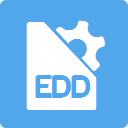Locus announces AB2886 reporting requirements
SAN FRANCISCO, Calif., 13 March 2003 — Locus Technologies (Locus), a leader in environmental information management, today announced that it has expanded its award winning, web-based Environmental Information Management™ (EIM™) system, a part of their LocusFocus(SM) Web portal, to include the capability of importing and exporting Electronic Data Deliverables (EDDs) that meet the state of California’s Water Resources Control Board AB2886 reporting requirements.
The import module includes all data verification and consistency checks outlined in the documentation for the program, as well as on-line forms to view location, well, sample, and analytical information in the AB 2886 format.
The export module allows the user to generate correctly formatted electronic datasets for any of the AB2886-required files. Both modules are intimately linked to other components of the system, thus allowing users to create reports, build graphs, query selected results, and/or download selected datasets into Microsoft Excel or other third-party packages.
These modifications to EIM™ reflect Locus’s commitment to building an enterprise system that allows national or multi-national companies to meet their diverse data management needs and reporting requirements across the U.S. and around the world. Other recent enhancements to the system give companies even more flexibility in customizing the requirements for a given facility or site, while still allowing all the company’s data to reside in a single repository.
“There are many different government-derived or commercial formats of electronic data delivery or reporting produced by analytical laboratories in California and nationwide. While Locus intends to match all these various format requirements by different states or regulatory agencies, the company is also working on pioneering the introduction of extensible markup language (XML)-based EDDs that would facilitate environmental data interchange among various project participants. Today, the advent of Web Services based on XML is making it possible to build, test, and deploy an application of XML-based EDDs that can be used beyond labs and consultants. Because it contains both the specific data required for a transaction or request, as well as the metadata, which describes the data, XML is used to exchange data between different computer systems and different software applications, therefore making EDDs more usable. Best of all, XML doesn’t have to ‘understand’ the underlying software running on the other computer. Locus is raising the issue of XML for EDD, owing to their greater flexibility and increasing use across a variety of fields and industries,” said Mr. Neno Duplancic, president and CEO of Locus.



